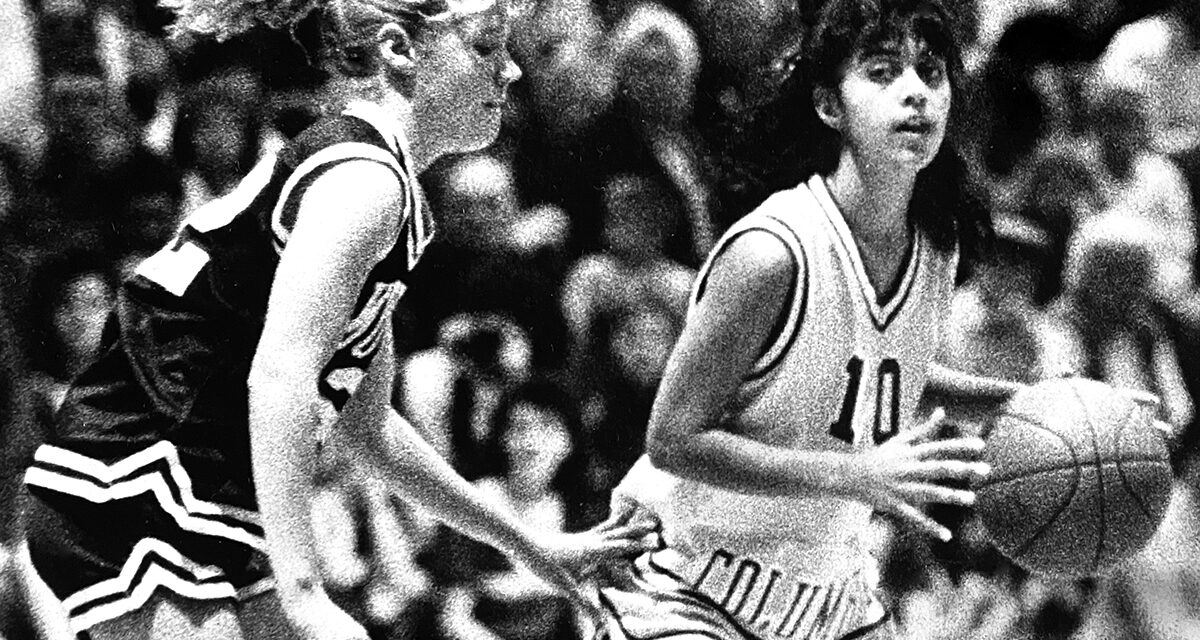Playing sports made me feel seen, gave me a sense of purpose, and helped me build confidence.
One of the things I look forward to most on Thanksgiving is the football game—not the NFL games on TV but the ones my brothers and I play in the backyard. For as long as I can remember we’d bundle up and play a feisty game, and my brothers never took it easy on me because I was a girl. My brothers always treated me the same (which is why my sciatica is still screaming at me a month after this year’s game), and I think that’s one of the reasons I gravitated toward sports throughout my life.
Playing sports—especially basketball, soccer, and tennis—made me feel seen, gave me a sense of purpose, and helped me build confidence, knowing I could contribute to something bigger than myself. It also informed how I approached my career and my life.
As I nursed my sore back after the game this year, I thought about all the ways being an athlete helped me get an edge in life. Whether you have a chance to play sports yourself or you are raising a young girl, here are five reasons to consider getting on the court or the field.
Great coaching makes everyone better.
When I was in middle school, the high school basketball coach came to see me after practice. Coach Kreiser was tall and intimidating, and I was nervous and awkward. I couldn’t imagine why he’d want to talk to me. He told me he appreciated my grit and ball skills, and he was going to consider me for the point guard position on the varsity team as a freshman. He was tough but fair, and his coaching made me better. At 5’2″ in my high tops, my coach elevated me to heights I couldn’t have imagined. I learned that no matter how much talent we had on the team, without his leadership we could never win. He was my first great teacher, and I still channel his patience, passion, and his ability to bring out the best in people in just about everything I do.
Strategic thinking is crucial to success.
As a team’s point guard, I had to learn to see the whole court. I mastered the art of implementing plays and organizing the team on our next plan of attack against our competitors. I was the dot connector, the cheerleader, and the distributor of information from the coaching staff to the team. I learned how to leverage information. How many fouls do the opponents have? How much time is left on the clock? I learned to manage competing priorities in a way that serves me still in work and in life.
True leadership starts with understanding.
Knowing your teammates’ strengths and weaknesses is crucial to being a great leader. You become better able to set them up for success, which lifts the entire team. I came to recognize that when a teammate wasn’t showing up as her best self in practice or during a game, it was often because something was happening in another part of her life that was weighing her down on the court. I learned that sometimes what’s on the scoreboard is less important than how you show empathy to your team.
Your mental health comes first.
While I was scoring points and winning games on the court, I was also enduring verbal and physical abuse at home. With no money to pay for college, I was fighting for my ride to college by getting straight As. I was hiding my sexual orientation as a lesbian. I was exhausted. Going through all of that taught me the importance of asking for help, of communicating what you need to the people you trust.
Adaptability can get you through a lot in life.
During my sophomore year in college, my basketball team was finally in sync. We were rolling, and then I felt (and heard) a pop in my knee during practice, which I knew immediately was probably a season-ending injury. I had to have surgery, and I felt devastated and lost. Everything felt off-kilter without sports in my life. Sitting on the sidelines during games was even more painful than the injury itself. But that experience taught me that the best-laid plans don’t always come to fruition, no matter how hard you work. It forced me to take a hard look at my life and my prospects for the future, and I spent two semesters studying abroad (and even got to play on the basketball team in England). That knee injury and the lesson I learned ultimately served me well in my career and my life, where everything can change on a dime.
Sitting on the sidelines during games was even more painful than the injury itself. But that experience taught me that the best-laid plans don’t always come to fruition, no matter how hard you work.








